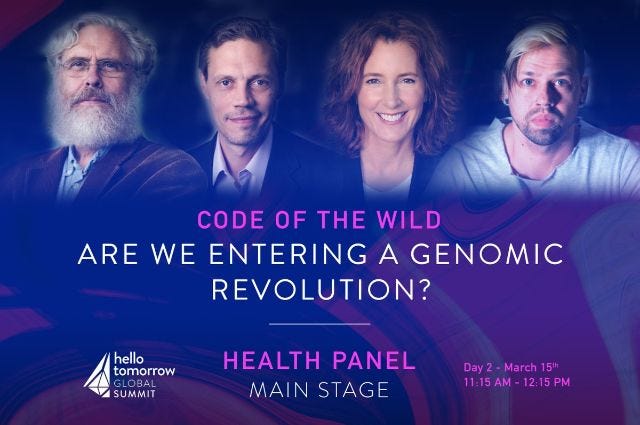Issue #200 - Finnish inmates train AIs; how AI is enhancing art; longevity as the biggest investment opportunity of all time
View this email in your browser
This week - Finnish inmates train AIs; how AI is enhancing art; longevity as the biggest investment opportunity of all time; a robot proves it is not a robot; and more!
MORE THAN A HUMAN
Longevity, the Greatest Investment Opportunity of All Time

Billionaire Jim Mellon bets that a “stock market mania” will be sparked by technologies that make people live past 100. He believes that almost every investment opportunity will look small compared to the money to be made in the next decade or so from rejuvenation industry.
Building a Brain Implant for Smell
Researchers are developing a device that could restore olfaction, much as a cochlear implant restores hearing. The idea is to convert chemical scent into electrical signals to stimulate the nasal cavity and sinuses. The initial experiments look promising but there is still a long road ahead.
ARTIFICIAL INTELLIGENCE
Inmates in Finland are training AI as part of prison labor

A Finnish startup Vainu had a problem - they wanted to train their AI but they didn't have enough labeled data in Finnish. To get the labeled data they needed, they turned to prisons and offered inmates an opportunity to train AI as a part of prison labor.
A.I. Will Enhance — Not End — Human Art
After an AI generated painting was sold for $432,500 at Christie’s New York last year, the cross-section between AI and art was brought to the public discourse. The questions people asked the most are "is AI going to make art irrelevant?" or "can AI make art?". This article asks a different question - "how can AI empower artists?"
ROBOTICS
Scarecrow drones keep birds away from crops without causing them harm
If you happen to be a scarecrow, I have bad news for you. Researchers in Australia are testing if drones can be used to scare off ravens and other birds from eating out grapes from vineyards. They use an off-the-shelf drone with the taxidermied body of a dead crow, plus a loudspeaker that broadcast the distress calls of several bird species. And it looks like the idea works.
This robot has proven it is not a robot
We are all doomed...
US Military Changing ‘Killing Machine’ Robo-tank Program After Controversy
After about AI-powered tanks, the US military had to go out and explain to the public that "this is not a killer robot". The rest of the article explains briefly the current relationship between military and tech companies
Russia Is Planning A “Ground Force” of Armed Military Robots
The Russian military’s research division is working to develop ground-based, combat-ready robots to assist its infantry. The heavily-armed robots resemble miniature tanks that can be deployed alongside infantry or swarms of quadrotor drones. Right now the human is in charge of the robots but the Russian military would like to use AI in these robots as soon as possible.
BIOTECHNOLOGY
► The Future of Genetic Engineering

George Church (the pioneer in genetic engineering), Antonio Regalado (biotech journalist), and Josiah Zayner (probably the most famous biohacker) discuss designer babies, moratorium on human germline engineering, biohacking and democratising genetic engineering, and the future of the genomic revolution.
Microsoft Is Building an All-In-One DNA Data Storage Device
DNA is emerging as an ultra-compact way of storing it all. Some even say it would be possible to shrink entire data centers worth of data to a size of a few dice. Now researchers supported by Microsoft have created the first system that can automatically translate digital information into genetic code and retrieve it again.
CRISPR Gene Editing Could One Day Cut Away Human Pain
Jo Cameron cannot feel pain. Researchers are now studying her DNA to find out what gave Jo superpower and how can we use what we learn from her DNA - from better painkillers to supersoldiers that don't feel pain or fear, speculates the article.
Doudna’s Confidence in CRISPR’s Research Potential Burns Bright
Here is an interview with Jennifer Doudna, one of CRISPR’s primary innovators, discussing using CRISPR in basic science and it can help us understand biology.
Thank you for subscribing,
Conrad Gray (@conradthegray)
If you have any questions or suggestions, just reply to this email or tweet at @hplusweekly. I'd like to hear what do you think about H+ Weekly.
Follow H+ Weekly!



